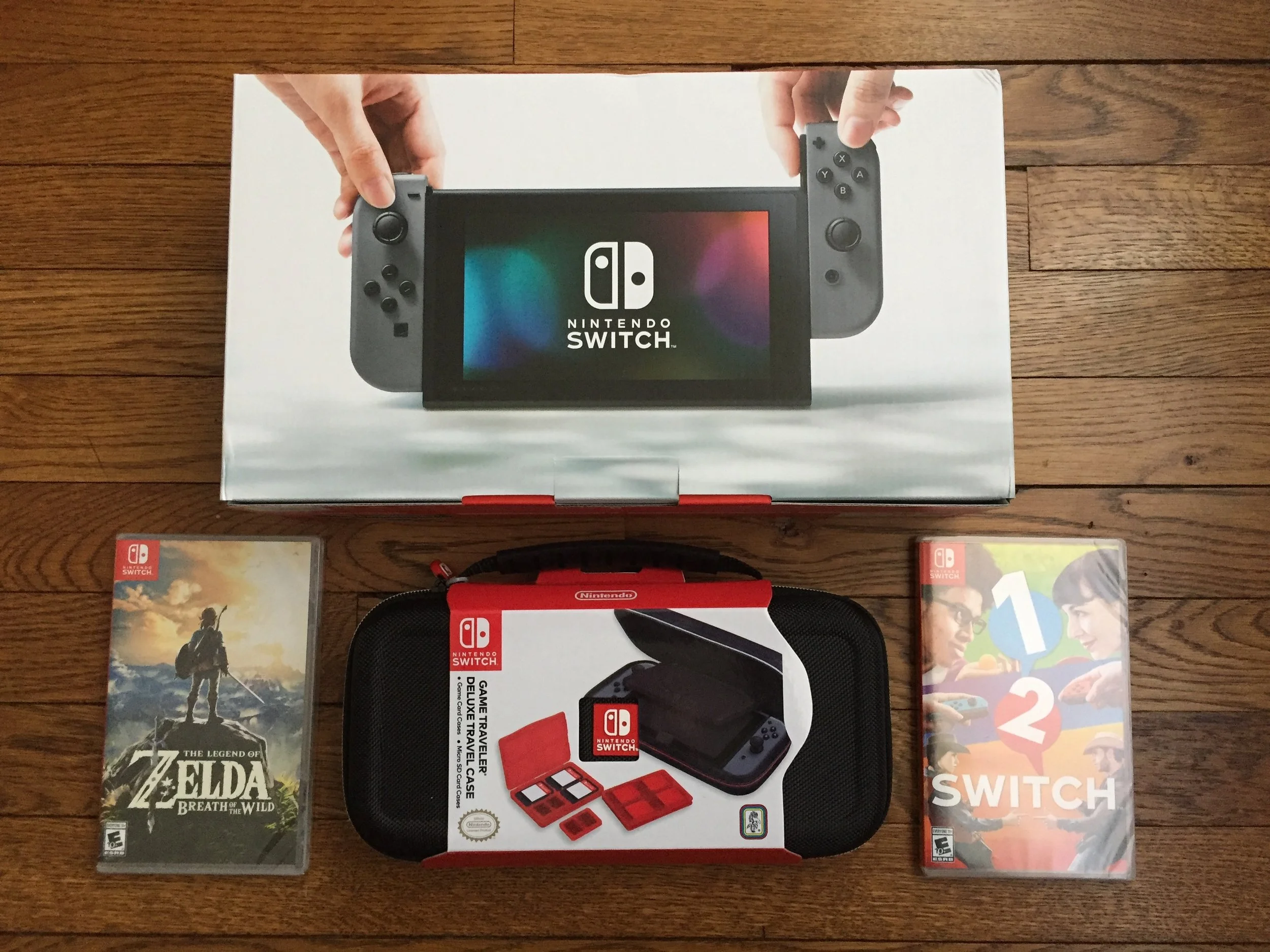It's probably not news to you by now that Alien: Isolation is a little bit of a divisive game. Some loved it, some didn't. Really, such is the case with many games. But, usually, I (like most people) would fall on one side the fence of these opposing views. The strange thing about Sega's interactive take on the 1979 space-horror classic is that I genuinely love and hate this game simultaneously.
Okay, "hate" is probably too strong a word, but you get the point. For all of the loving attention to detail in the source material, for all the sheer terror of the alien, and for all of the uncompromising gameplay, it's hard not to feel like the game just isn't fair sometimes. I'm pretty sure that's by design, but we'll get to that. First, let's back up and talk about what makes this game absolutely brilliant.
Isolation is, in fact, aptly named. Much like the opening scenes of Ridley Scott's film, you awaken slowly and quietly on The Torrens, a ship quite similar to Alien's The Nostromo. Visually, it's as close as we've ever come to walking through a virtual recreation of the film's set.
Alien, 1979 (film)
Alien: Isolation, 2014 (game)
You awake in sleeping pods, you can walk through the kitchen, the cockpit, the corridors, and the medical bay. All of the video screens have 1980s monochrome readouts, the lighting is perfect, the bobbing bird heads creak eerily, and the other (sparse) crew members are scattered about minding their various tasks. There is no imminent danger; all of this exists completely to help build the world and let you settle in to your surroundings.
Incidentally, that last point is really key: any good horror story gives you a good chance to accept the world and feel some degree of safety. If you don't have that baseline, then there's no impact when things start to go wrong and that safety is taken away. Horror games are often too insecure to give this part of the experience enough time. Take, for instance, the original Resident Evil: after an opening cinematic in which you and your team are chased by zombie dogs until finding a mysterious mansion that seemingly offers refuge, you only have five to ten minutes to explore the creepy environment before you're likely to stumble upon the first zombie. By contrast, Alien: Isolation gives you at least an hour before things start deteriorating, and that makes a huge difference in terms of overall pacing.
Once you're in the thick of the action on the space station Sevastopol, the consistent look of the world helps heighten the terror. But, even then, it's a gradual progression to actually meeting the alien. You'll meet some other survivors, learn that something is definitely wrong, get split up from your other crew members, and generally start to worry about your own survival.
Sevastopol Space Station, in which you will be chased relentlessly by the alien. Welcome home!
All of these early scenes are incredibly satisfying to experience because there is a sense of danger mixed with exploration and a bit of uncertainty. But the game in these points does a really good job of keeping you moving toward the next plot point all while teaching you more about the world and how you'll interact with it. It never felt like a pointless tutorial, but you do start to acquire the various tools and techniques you'll use throughout the rest of the game.
I was also surprised that there are other threats on the station: other humans are freaked out and generally more apt to kill than help you, and then a whole fleet of androids called "Working Joes" have gone haywire and will slowly-but-steadily plod after you and try to bash you into bloody submission. The good news is that there are tactics you can use to outmaneuver, outsmart, or outgun these encounters, even if you are a bit underpowered in general. This gives the game the feeling of a smartly-designed first-person stealth outing.
As a note, I can already understand if whole segments of its prospective audience would already have been turned off by the list of things I really like about this game: slow pacing, stealth gameplay, minimal weapons, etc. For me, though, this all added up to one of the best gameplay experiences I'd had in recent memory. To each their own.
Eventually, though, you will meet the alien. Or, rather, you will see it and pray that it never sees you. If it does, it's basically a one-way trip to the game over screen and a reload from the unforgiving save system. Again, though, I'm getting ahead of myself.
This really isn't what you want to see.
There's a lot to like about how smart the alien can be, reacting to sounds, lights, and movement as it paces the ship hunting for its next meal (i.e. you). And the tools you have to avoid the alien are perfectly rooted in the world, which adds to the feeling of being insufficiently prepared to face this foe.
Each mission of the game lets you explore more parts of the Sevastopol as you work to escape the overrun space stations, and once you've met the alien, it will be with you for most of the adventure to varying degrees. While the game does give you certain respites from the terror, it's best to never really let your guard down while you work steer as clear as you can from the menacing Xenomorph roaming the halls.
Your primary avoidance mechanism is a motion tracker that you have to actively hold up with a button (although it will beep if it senses motion nearby). This gives you a bit of an edge over the otherwise incredibly powerful alien, if only minimally. You'll spend much of the game anxiously checking this device and hiding in lockers and under desks, hoping that it won't smell your breath and rip you out.
Something's up ahead...
There's something brilliant about forcing an ultimately crappy tool on you. Unlike so many modern stealth or horror games that might give you an always-on mini map that outlines every piece of furniture and hiding spot, the motion tracker requires the player to think spatially about the direction their facing and the general distance of any moving dots.
You don't know if the dot is an alien, a human or an android. You don't know if the alien is walking around or crawling through a vent. And, sometimes, when you are hiding, you can't even turn to face the right direction to even see the damn dot. If part of the horror formula requires the audience to feel underpowered against the threat of violence, then Alien: Isolation gets an A+ in this category.
However, the game often ends up veering too far in this direction to the point of frustration.
Unlike the human or android inhabitants of the space station, which can be dealt with in some situations, the alien pretty much always wins. You can't outrun it (as the game often reminds you during loading screens), you can't shoot it, you can't beat it. You simply have to avoid it at all costs. While the first-person perspective is great for immersion and exploration, it can sometimes be a real challenge for a game about being aware of your environment at all times.
This isn't a good sign.
I get it: if you were really experiencing this, you would be, of course, in first-person. But, for all of the ways to simulate your surroundings through on-screen and audio cues, you're ultimately much more limited in your ability to sense your surroundings in a first-person video game than you would actually be if you were on this space station. That creates a certain amount of narrative dissonance, which results in some of the times you'll die feeling cheap.
If I walk out in front of the alien and it grabs me, that's on me; when I've been carefully maneuvering through a level and the alien decides to really quickly run back to where it just left and devours me before I can react, that doesn't feel earned: it feels unfair. Whenever you start to feel like an opponent (whether man or machine) isn't playing fair, you start to feel like the experience isn't respecting your time. Unfortunately, this is a line that Alien: Isolation has trouble walking.
For all the care taken in crafting the perfect environment and the perfect enemy, the game itself is not quite perfect. In their apparent insistence on creating a sort of horror simulator, it feels like perhaps some of the best practices of good game design were left by the wayside. Yes, in reality, the alien would most likely always win if it saw a lone human, it's just maddening when it catches a glimpse of you and potentially erases the last 15-20 minutes of hard work.
The save system, you see, takes an older-school approach and only lets you save at special call boxes throughout the space station. A quick glance through an internet discussion forum on it has people vacillating between calling the save system a "game-breaker" and a "game-maker." I don't know if I would go so far as to call it either, but I can see where it both helps and hurts.
The emergency call box of Alien: Isolation, required to save.
The infamous typewriter from Resident Evil.
To reference the original Resident Evil again, which featured not only fixed save points, but also a limited number of "ink ribbons" (a scarce item required to even use the save points, which were typewriters), there is something to be said for the real-world risk of losing game progress. If you know you can simply reload a save and try again without any major penalty, it starts to feel like you're gambling for fake money—no risk, no reward.
At the same time, I'm an adult with a job, a wife, and lots of other time commitments; I don't have the endless hours of youth to while away on every game, no matter how authentic it may or may not be. When I repeatedly have to retry a particularly challenging part of the game, spending five or ten minutes on each attempt, I end up feeling like the game has cheated me out of enjoying it, and that's a really crummy experience.
I'm not sure what the fix is for this, but then I'm not a game designer, and that's not my job. I can only say that this is a real problem that the game faces, and it's unfortunate that the only real way around this is to adjust the difficulty (which, thankfully, can be changed on the fly).
How many times can you see this before you move on?
As it stands, I'm about a third of the way through the game and constantly fighting conflicting desires to keep working through the sometimes-unfair campaign and eyeing the stack of other games (physical and digital) vying for my attention. In an increasingly time-constrained world, this is an unfortunate reality of being a gamer: sometimes the best experiences just might not deserve your time.











